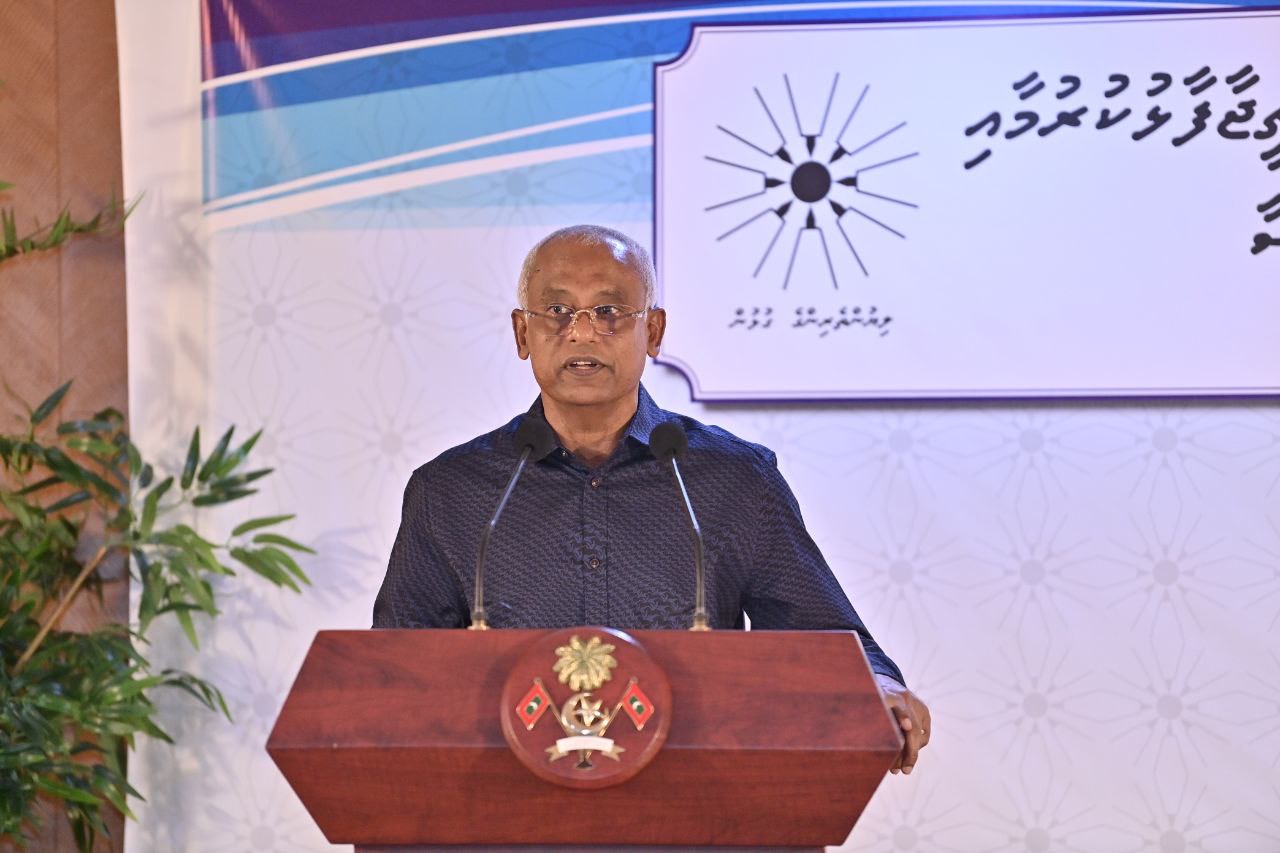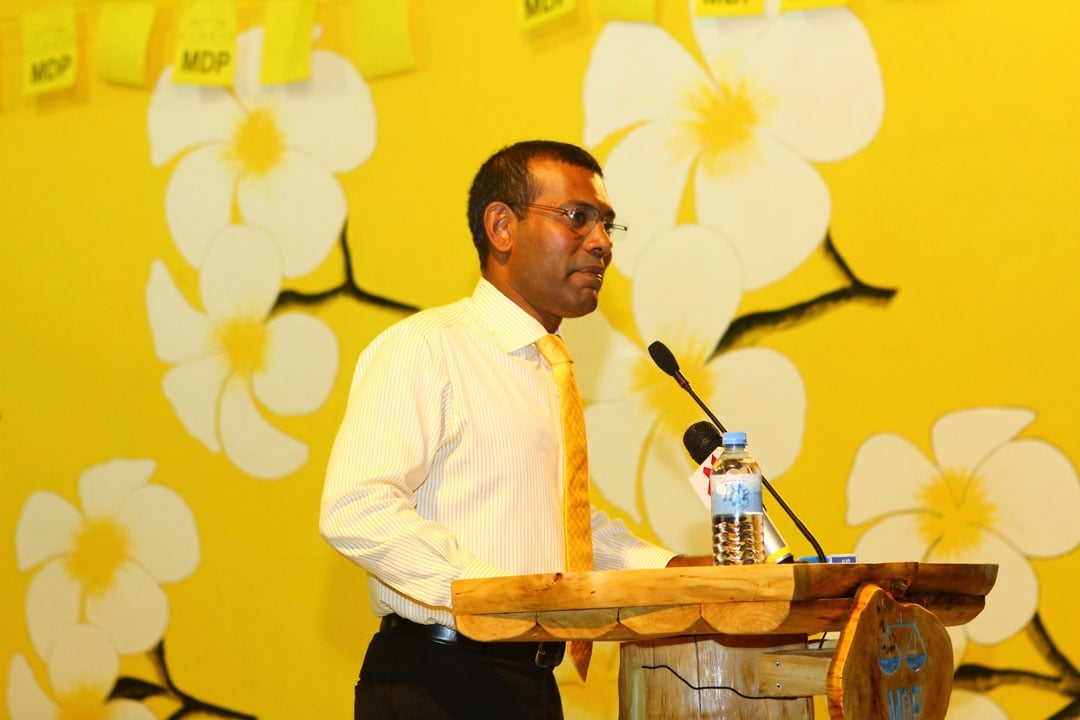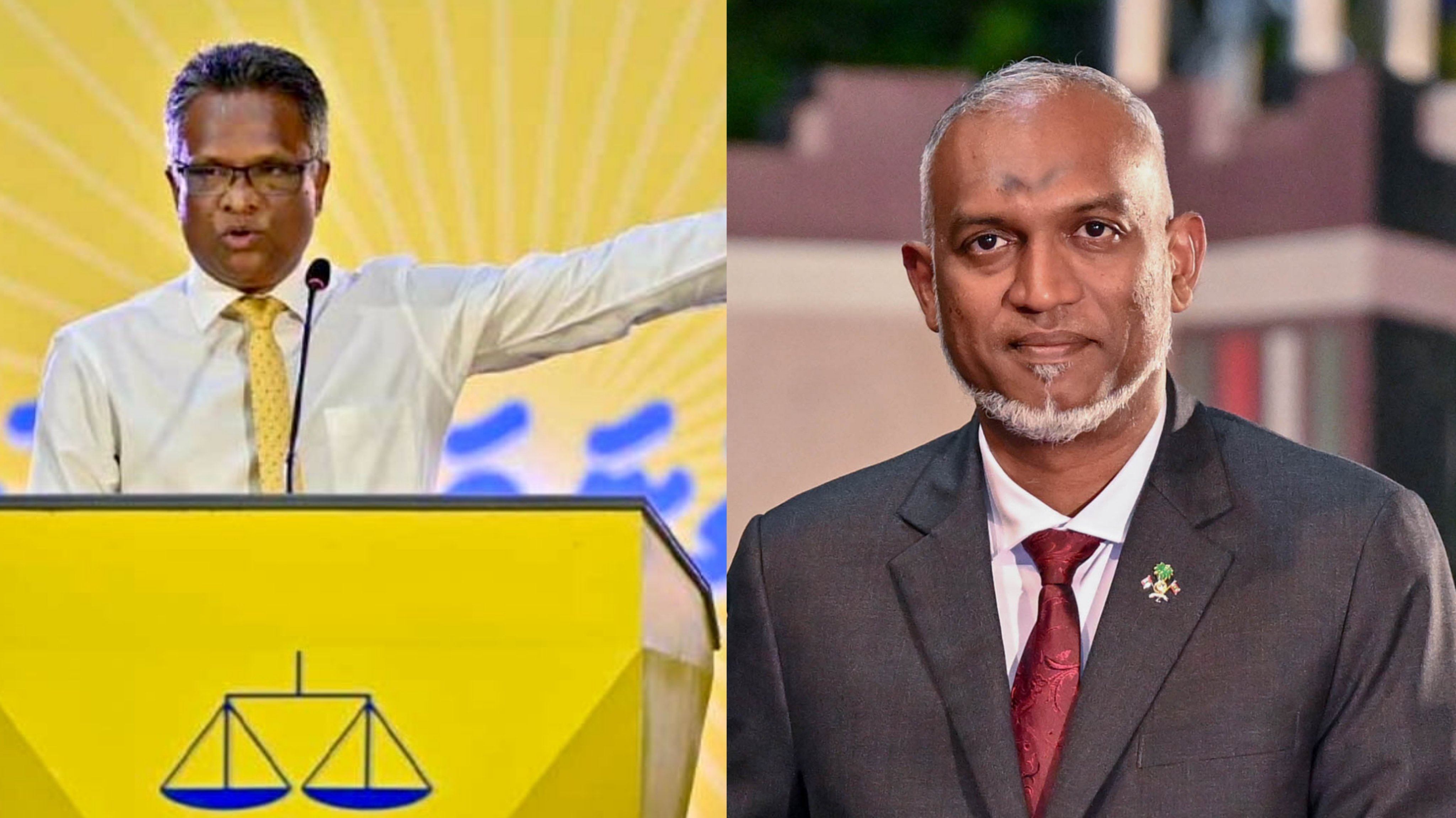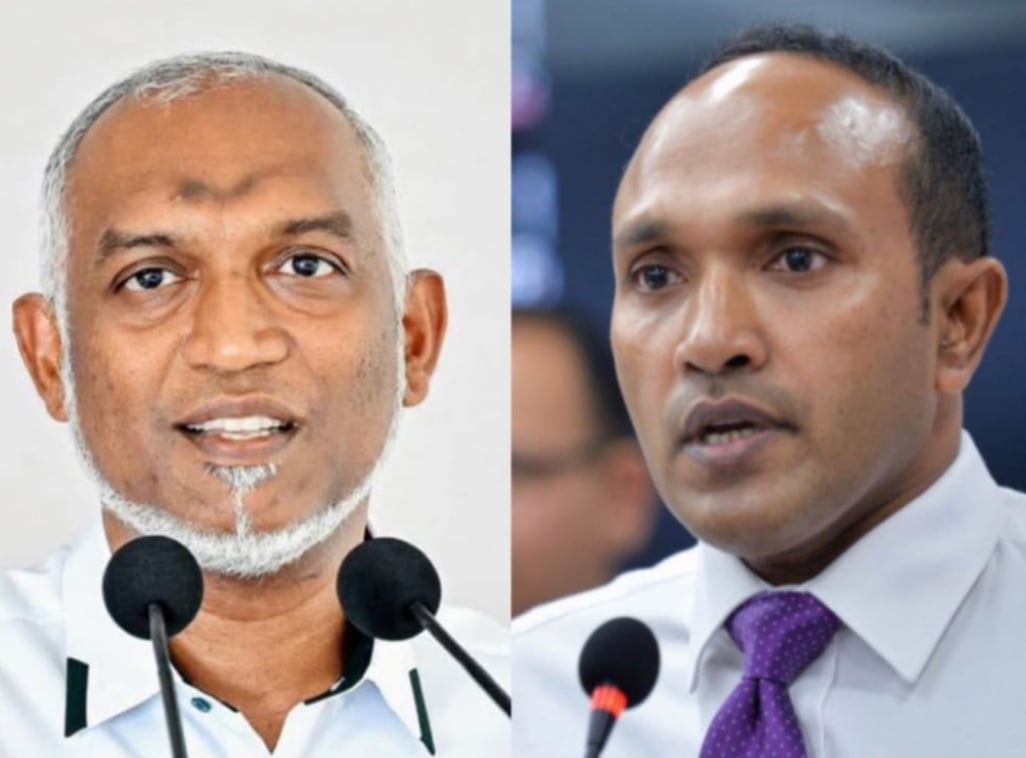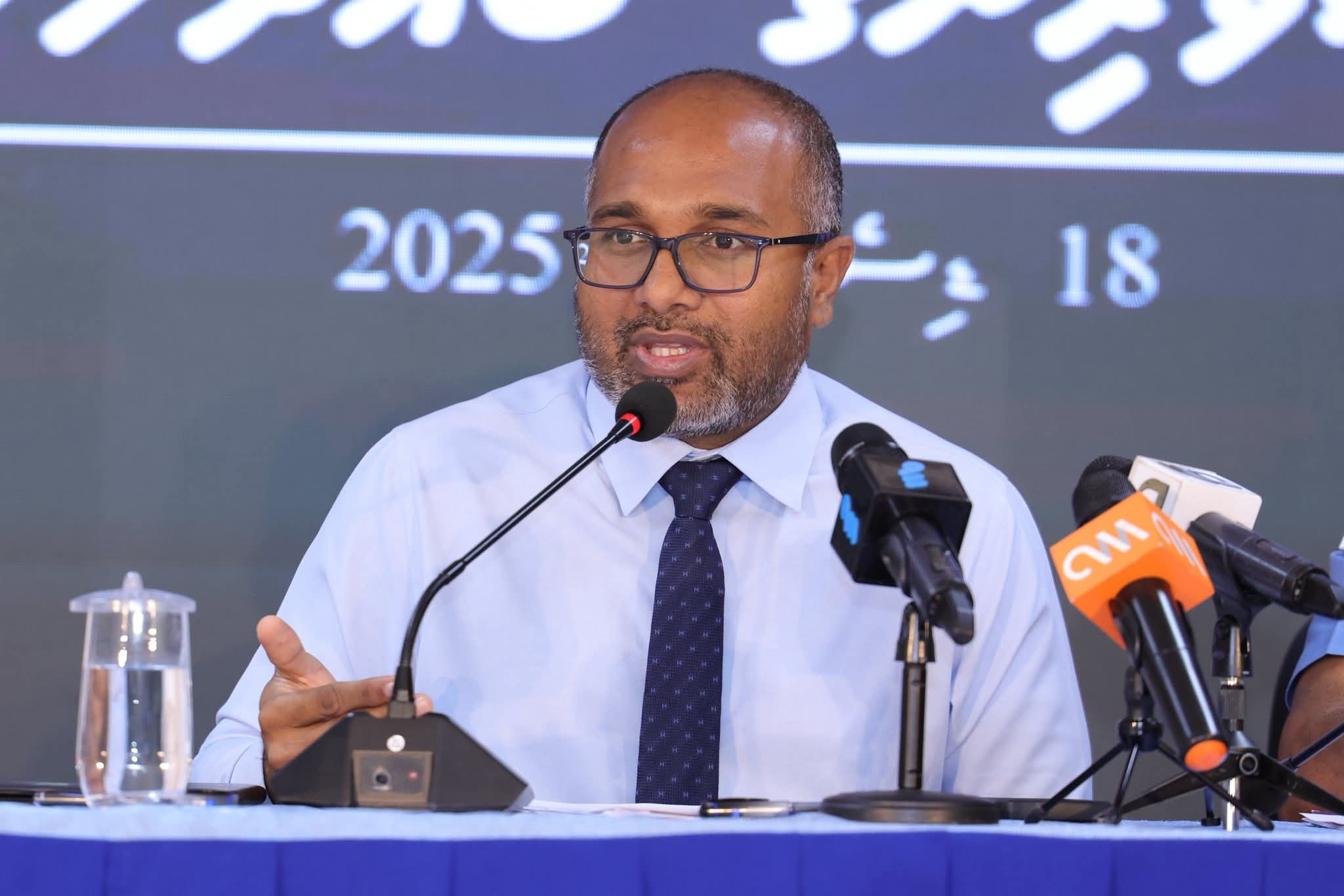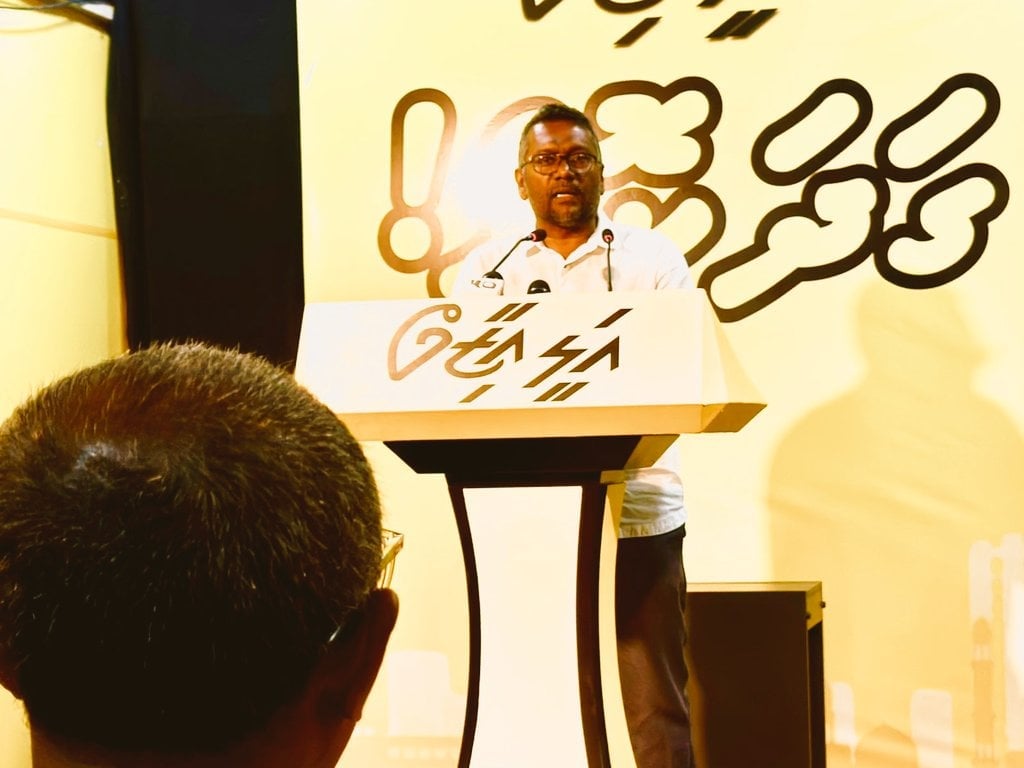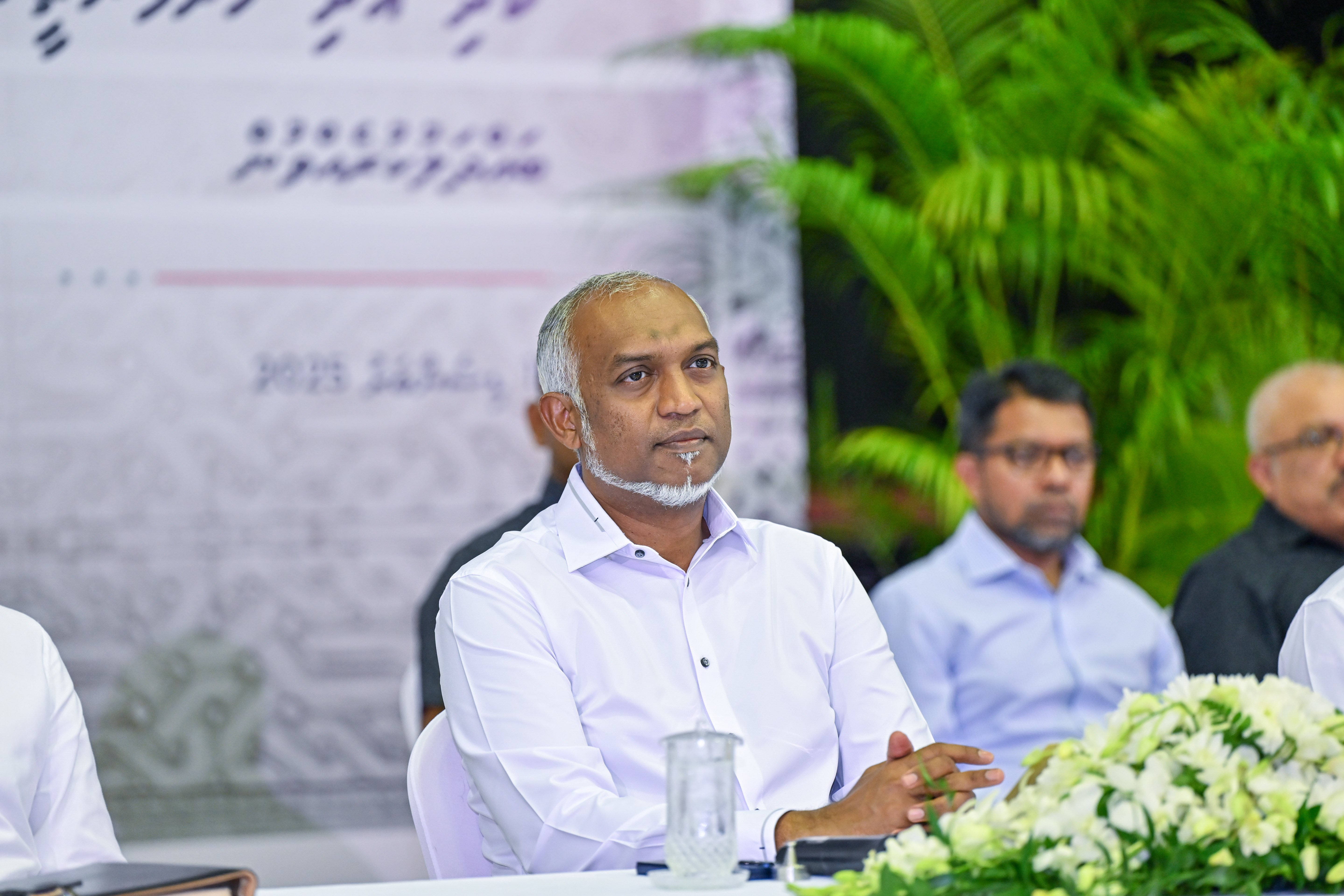President Ibrahim Mohamed Solih on Wednesday called on the community to reflect on the factors that lead to children ceasing to learn and use the Dhivehi language, expressing concern that the native language is being lost and urging the community to preserve it.
He made these remarks while speaking at an event to commemorate the 13th anniversary of the Writers' Guild of the Maldives and the closing of a story-writing competition. The event was held at the State Electric Company Ltd. (STELCO) hall.
Speaking at the event, President Solih commended the Writers' Guild for promoting Dhivehi and literature, stressing the importance of safeguarding and preserving our language and literature to maintain and uphold the country's nationality.
Highlighting the importance of the Dhivehi language and literature, the President stated that our language is the greatest blessing of the people after the guidance of Islam and that it is a rich and vibrant language with a long and distinguished history. He described Dhivehi literature's depth and richness, stating that our language has distinct art forms: poetry, writing, speaking, and oratory.
Calling for the promotion of Dhivehi literature, President Solih said that schools and societies should be environments that expose children to the literary arts. He also noted that mastering one's native tongue is a powerful motivator for understanding the depth of other languages.
He also expressed concern over the level of proficiency of children and youth in the Dhivehi language, adding that some children with high intellectual and academic aptitude exhibit delayed development in speaking Dhivehi. He stressed that it is the responsibility of the government, authors, language instructors, and the entire community to address this issue, as it could cause irreparable damage to literature if left unaddressed.
The President concluded his remarks by calling on writers, language teachers, and professors to produce Dhivehi literature that caters to a diverse range of age groups. He emphasised the importance of creating more ethical Dhivehi books, particularly for children. He also recognised the top three winners of the story-writing competition, organised by the Writers' Guild, by presenting them with prizes.
He made these remarks while speaking at an event to commemorate the 13th anniversary of the Writers' Guild of the Maldives and the closing of a story-writing competition. The event was held at the State Electric Company Ltd. (STELCO) hall.
Speaking at the event, President Solih commended the Writers' Guild for promoting Dhivehi and literature, stressing the importance of safeguarding and preserving our language and literature to maintain and uphold the country's nationality.
Highlighting the importance of the Dhivehi language and literature, the President stated that our language is the greatest blessing of the people after the guidance of Islam and that it is a rich and vibrant language with a long and distinguished history. He described Dhivehi literature's depth and richness, stating that our language has distinct art forms: poetry, writing, speaking, and oratory.
Calling for the promotion of Dhivehi literature, President Solih said that schools and societies should be environments that expose children to the literary arts. He also noted that mastering one's native tongue is a powerful motivator for understanding the depth of other languages.
He also expressed concern over the level of proficiency of children and youth in the Dhivehi language, adding that some children with high intellectual and academic aptitude exhibit delayed development in speaking Dhivehi. He stressed that it is the responsibility of the government, authors, language instructors, and the entire community to address this issue, as it could cause irreparable damage to literature if left unaddressed.
The President concluded his remarks by calling on writers, language teachers, and professors to produce Dhivehi literature that caters to a diverse range of age groups. He emphasised the importance of creating more ethical Dhivehi books, particularly for children. He also recognised the top three winners of the story-writing competition, organised by the Writers' Guild, by presenting them with prizes.





